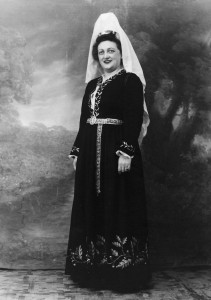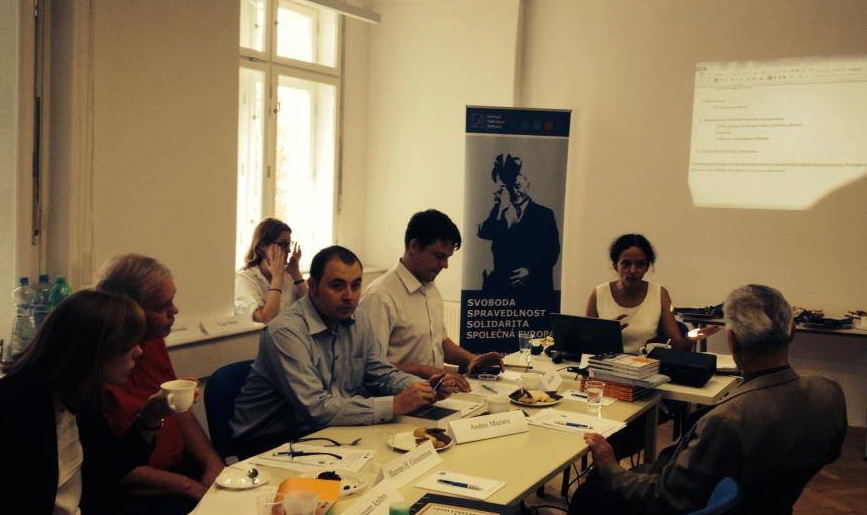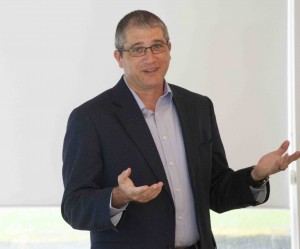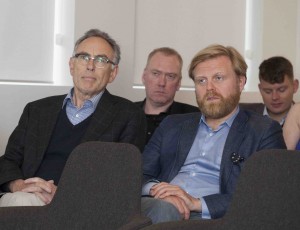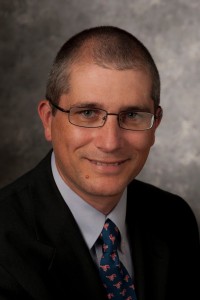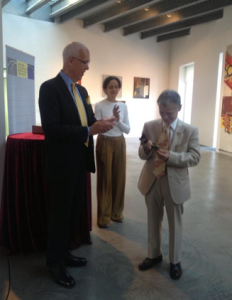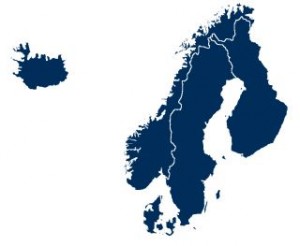 RNH’s Academic Director, Professor Hannes H. Gissurarson, gives four papers in Nordic conferences in August 2014. At the annual meeting of NOPSA, the Nordic Political Science Assocation, in Gothenburg in Sweden 12–15 August he discusses three topics. One of them is at a seminar on “International Courts and Domestic Politics”, directed by Johan Karlsson Schaffer. There he analyses the Icesave dispute between Iceland on the one hand and the UK and the Netherlands on the other hand and discusses the positions taken by the other Nordic countries and by the IMF, International Monetary Fund. He describes the attempts to reach a deal in the dispute, the decision of the EFTA Court and the impact of the case on domestic politics. The opponent is Dr. Matthew Saul, a research fellow at Oslo University.
RNH’s Academic Director, Professor Hannes H. Gissurarson, gives four papers in Nordic conferences in August 2014. At the annual meeting of NOPSA, the Nordic Political Science Assocation, in Gothenburg in Sweden 12–15 August he discusses three topics. One of them is at a seminar on “International Courts and Domestic Politics”, directed by Johan Karlsson Schaffer. There he analyses the Icesave dispute between Iceland on the one hand and the UK and the Netherlands on the other hand and discusses the positions taken by the other Nordic countries and by the IMF, International Monetary Fund. He describes the attempts to reach a deal in the dispute, the decision of the EFTA Court and the impact of the case on domestic politics. The opponent is Dr. Matthew Saul, a research fellow at Oslo University.
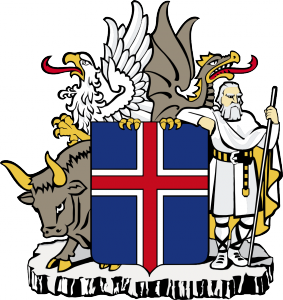 In the second place, Professor Gissurarson tries to answer the question at a seminar on “International Political Theory” directed by Göran Duus-Otterström why Iceland was, in the 2007–9 financial crisis, left out in the cold. He points out that small nations have usually been subdued by bigger ones: in international politics, might is right. In the 20th Century, Iceland had mostly relied on the UK and the US for protection. However, in the autumn of 2008 Iceland found itself suddenly without any friends or allies. The US Federal Reserve System made dollar swap deals with the central banks of Sweden, Norway and Denmark, while refusing such a deal to Iceland. The UK government refused to include British banks, owned by Icelanders, in an immense rescue package for banks in October 2008, closing them down instead and even imposing an anti-terrorism law against one of them and briefly also against the CBI, Central Bank of Iceland, and against other government institutions. The opponent is Dr. Aaron Maltais, a research fellow at Stockholm University.
In the second place, Professor Gissurarson tries to answer the question at a seminar on “International Political Theory” directed by Göran Duus-Otterström why Iceland was, in the 2007–9 financial crisis, left out in the cold. He points out that small nations have usually been subdued by bigger ones: in international politics, might is right. In the 20th Century, Iceland had mostly relied on the UK and the US for protection. However, in the autumn of 2008 Iceland found itself suddenly without any friends or allies. The US Federal Reserve System made dollar swap deals with the central banks of Sweden, Norway and Denmark, while refusing such a deal to Iceland. The UK government refused to include British banks, owned by Icelanders, in an immense rescue package for banks in October 2008, closing them down instead and even imposing an anti-terrorism law against one of them and briefly also against the CBI, Central Bank of Iceland, and against other government institutions. The opponent is Dr. Aaron Maltais, a research fellow at Stockholm University.
 Thirdly, at a seminar directed by Anders Lindbom on “The Nordic Welfare Model in Transition”, Professor Gissurarson discusses the development of the Icelandic welfare state during the 1995–2004 market capitalism, the 2004–8 crony capitalism and then in the post-collapse years. He maintains that welfare benefits have remained generous in Iceland, while income distribution became less even under the 2004–8 crony capitalism, characterised by an immense credit expansion. Professor Gissurarson points out that in 2004, at the end of the market capitalism era, poverty and social exclusion in Iceland were almost negligible and certainly much less prevalent than in almost all other European countries. The three Gothenburg papers form a part of the joint project by RNH and AECR, the Alliance of European Conservatives and Reformists, on “Europe, Iceland and the Future of Capitalism”. The opponent is Stephan Köppe, a research fellow at Dundee University.
Thirdly, at a seminar directed by Anders Lindbom on “The Nordic Welfare Model in Transition”, Professor Gissurarson discusses the development of the Icelandic welfare state during the 1995–2004 market capitalism, the 2004–8 crony capitalism and then in the post-collapse years. He maintains that welfare benefits have remained generous in Iceland, while income distribution became less even under the 2004–8 crony capitalism, characterised by an immense credit expansion. Professor Gissurarson points out that in 2004, at the end of the market capitalism era, poverty and social exclusion in Iceland were almost negligible and certainly much less prevalent than in almost all other European countries. The three Gothenburg papers form a part of the joint project by RNH and AECR, the Alliance of European Conservatives and Reformists, on “Europe, Iceland and the Future of Capitalism”. The opponent is Stephan Köppe, a research fellow at Dundee University.
At the 28th Nordic Historians’ Congress in Joensuu in Finland 14–17 August 2014, Professor Gissurarson gives a lecture on the main theme of the Congress, “Crossovers—Borders and Encounters in the Nordic Space”, at a seminar chaired by Finnish historian Jouko Nurmiainen. The paper is on two Germans who both lived in Iceland before the Second World War. One of them, the nazi Dr. Bruno Kress, taught German and did research on Icelandic grammar, supported by Ahnenerbe, the SS “research” institute. The other German was a Jewish refugee, Henny Goldstein, who came to Iceland with her son and her mother. One of her two brothers succeeded in escaping to Iceland before the War, but the other one was killed at the notorious Natzweiler Camp after experiments that Ahnenerbe did on him and other Jews selected from Auschwitz, where his wife and their three years old son however perished. The nazi was arrested by the British occupation forces in Iceland and spent a few years in captivity on the Isle of Man, before being sent to Germany under a prisoners-exchange programme. After the War, Dr. Kress became a communist in East Germany and was appointed Professor of Nordic Studies at the University of Greifswald. The Jewess married an Icelandic journalist, an ardent communist by the name of Hendrik Ottosson, and became an Icelandic citizen. These two—the Jewess who became an Icelander and the nazi who became a communist—met again in 1958, at the 60th birthday of the Icelandic communist leader Brynjolfur Bjarnason. Henny Goldstein-Ottoson was upset at seeing again, and at this occasion, the man whom she remembered from pre-war Reykjavik as a committed nazi, but the incident was hushed up. Professor Gissurarson’s paper forms a part of the joint RNH and AECR project on “Europe of the Victims”.
Gissurarson slides in Gothenburg 13 August 2014
Gissurarson slides in Gothenburg morning 14 August 2014


